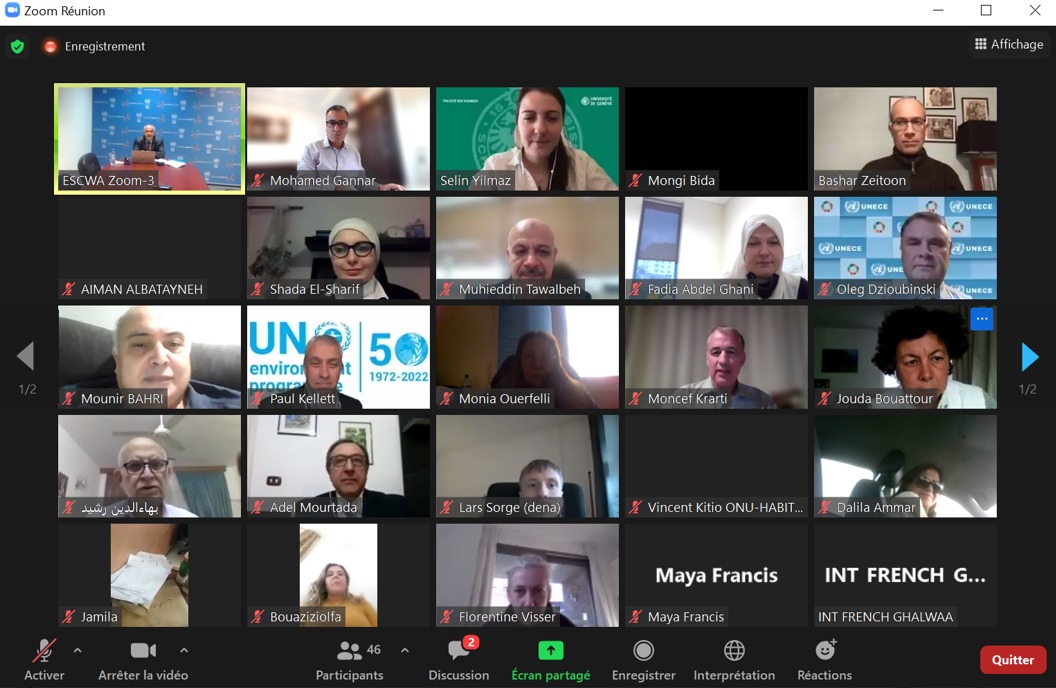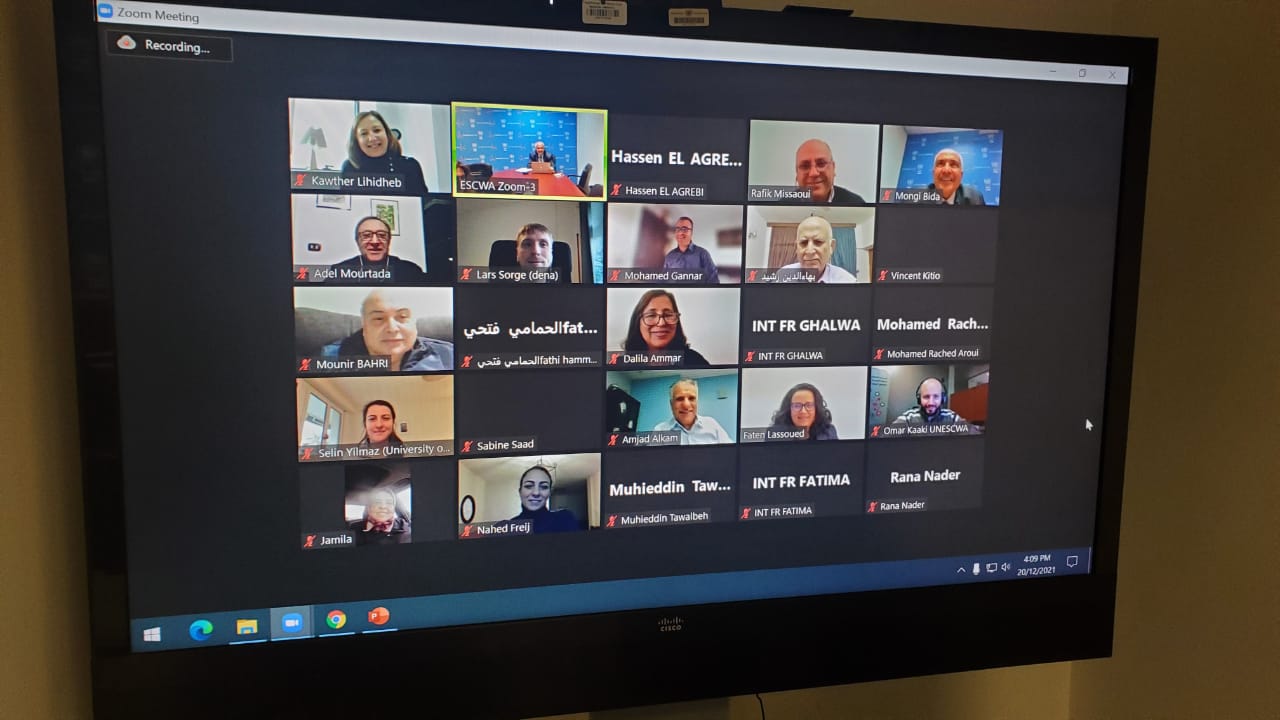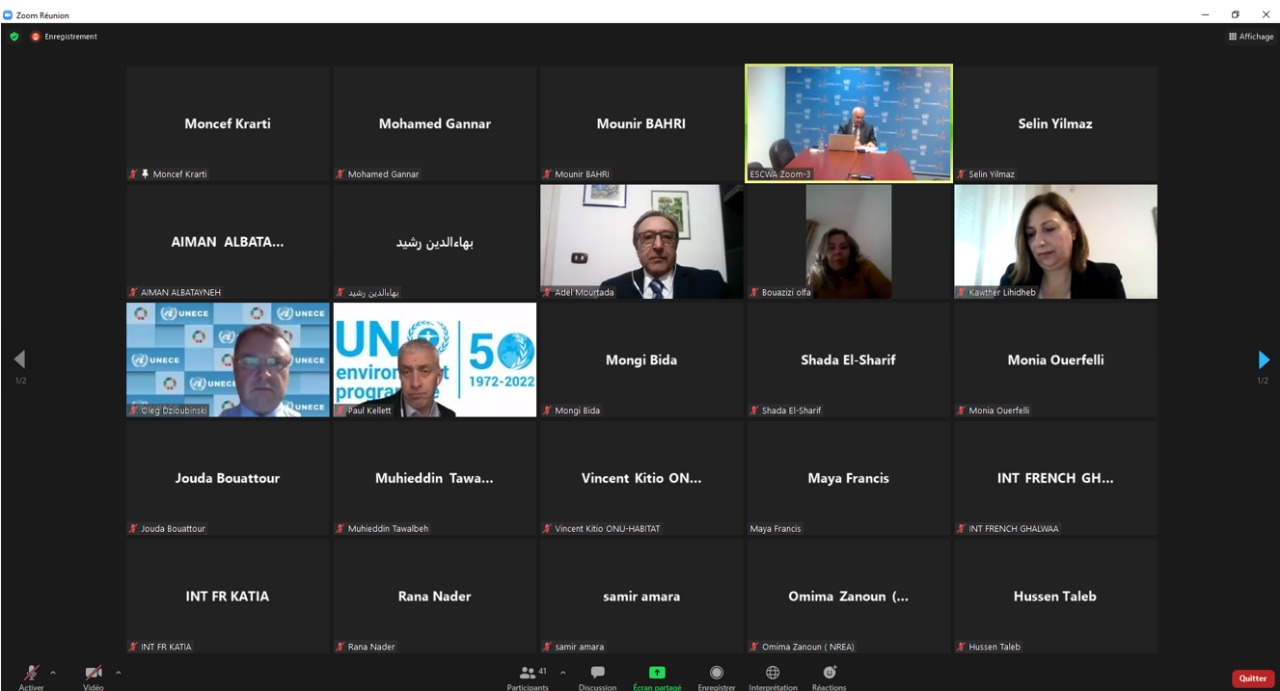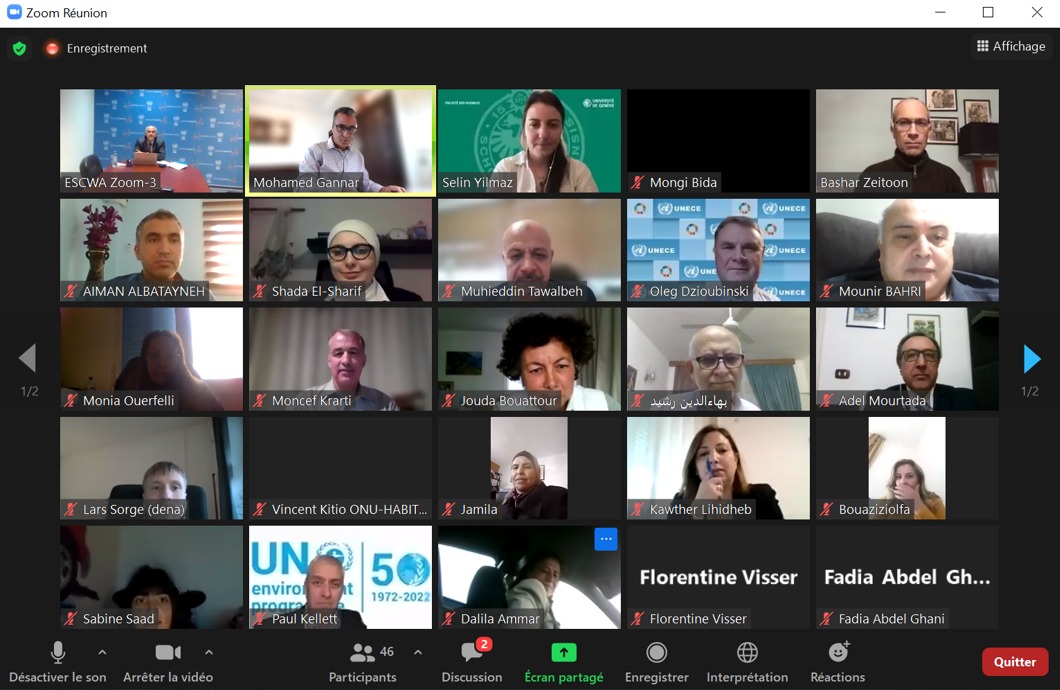
ESCWA, in partnership with the Ministry of Energy and Mineral resources (MEMR) in Jordan and the National Agency for Energy Conservation (ANME) in Tunisia, organizes a regional webinar to present the outcomes of the United Nations Development Account (UNDA) project on “Upscaling Energy Efficiency in residential and services sectors in the Arab Region”.
The webinar is the closing event for the project since its activities in Jordan and Tunisia have been completed. The webinar poses an opportunity to take stock of the project’s activities and accomplishments and to discuss lessons learnt for future cooperation.
Meeting recording of day 1 can be accessed through the following link. (Access Passcode: &q$9Jxeg)
Meeting recording of day 2 can be accessed through the following link. (Access Passcode: #xLdm9yB)




